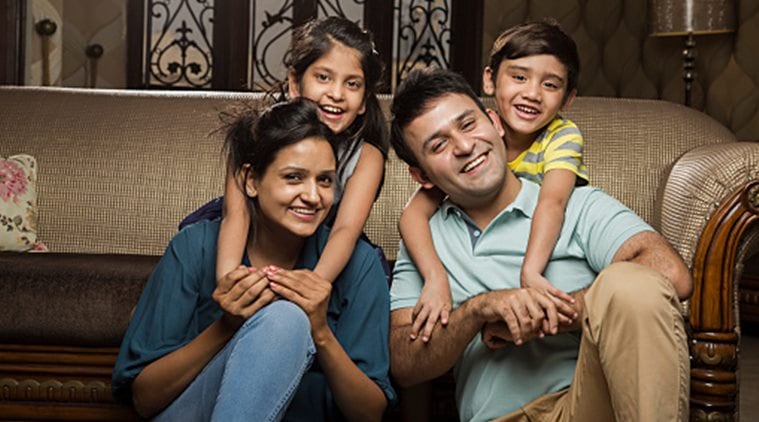How to adopt positive parenting habits
Spare time to have a conversation with your child to explore his/her understanding of things. Disregarding their feelings makes them feel unwanted and causes negative effects.

By Samira Gupta
The most challenging task for parents of today’s modern world is to acquire a good parenting style. Parents usually follow their own upbringing for bringing up their kids, which may not be the right approach. Poor parenting refers to a series of actions that can adversely harm the psyche as well as the physical demeanour of a child. Here are some traits to watch out for:
No defined rules
An excess of everything is harmful. Not defining the threshold or limits for kids can make them undisciplined and make it challenging for them to adapt outside their home. For instance, granting children unlimited screen time is harmful to their development as interpersonal skills can be arrested, leading to learning difficulties.
Over pampering
Children need to know that their parents love them, however when they are over pampered it prevents them from becoming self reliant and independent. Ideally parents should, as much as possible, let children figure things out for themselves.
Lack of support
Little ones need constant support to deal with their problems. Be it their school performance or learning a new game, they look forward to their parents for support. Children likely will face challenges in school be it bullying or being teased, in such cases they may have no one but their parents to turn to. Parents should take out time to listen to their children and let them know they are loved. This will boost their self-esteem and allow them to face challenges head on.
Comparing your child
Every child is unique. Comparing them or telling them to be like others can develop negativity in children. When a friend’s child excels in a subject, a parent should not point it out and express a desire that their child try to excel in the same subject. Doing so affects a child’s self-esteem; parents should try to encourage their child to excel in subjects he or she loves and has an aptitude for.
No appreciation for their achievements
Not praising them for their small or big achievements can lower a child’s confidence. Whenever they do something good, parents should express their appreciation. For instance, a child who is learning to play the violin should be commended they get better at playing.
Disrespecting their feelings
Spare time to have a conversation with your child to explore his/her understanding of things. Disregarding their feelings makes them feel unwanted and causes negative effects. Children generally look up to their parents for approval and ideally, a family should have time set aside each day to spend together, such as dinner. On weekends, spend at least one entire day together as a family.
Also Read| Why peaceful parenting is better than traditional parenting
Effects of poor parenting on children
Antisocial Behaviours
When kids do not understand how their activities might disturb others, it is termed antisocial behaviour. Parents who exhibit coercive behaviour, domestic violence and drug abuse can affect children negatively in this respect.
Aggression
Children learn from their parents’ actions and behaviours. They look forward to you on how you cope with the emotional imbalance, mental trauma, and physical abuse and inculcate the same habit in them. If you do not address their problems and negative emotions, they may tend to become aggressive.
Depression
Studies on parenting and child behaviour reveal that parents with negative approaches are prone to push their kids to depression. Low levels of emotional support, consistent ignorance, corporal punishment and inappropriate display of negative expressions often end up causing depression in children.
Lack of empathy
Children behave with others the way they have been treated at home. Ignorant and aggressive attitude towards kids can make them unempathetic.
Difficulty in dealing with relationships
Parents who do not allow their children to liberally express their emotions and feelings usually find that their kids are not good at making friends or building strong bonds with others. It also results in lowering their trust level and self-confidence.
How to adopt a positive parenting style
Follow these simple tips to nurture a happy child.
Hands-on parenting
Join your kids during their fun activities and try to incorporate good morals and ethics into their personalities. Teach them important lessons about life and build an emotional affinity with them.
Do not shout at your child
Focus on dealing with the situation peacefully through logical reasoning rather than scolding your kids. Listen to their opinions and problems and communicate with them effectively and affectionately.
Define rules
Setting up certain rules and schedules is a vital aspect of the growth and development of children. Discuss the new rules with your kids and encourage them to follow them in a healthy way to boost their self-esteem. For example, if you want them to help you in a household chore, explain to them what is to be done and how and give them a timeline to follow.
Set a good example
Children imitate your actions and your way of talking and living. Therefore, you should practice healthy habits and a good attitude toward everything.
Don’t raise your hand
There can be moments when kids cross all the limits of misbehaviour, compelling you to lose your patience but stay calm and control yourself from raising hands on them. Physical punishments pose negative psychological effects on little ones which affect their development and make them stubborn.
Inculcate reward and punishment
Rewarding good behaviour and punishing for misbehaving creates an understanding of right and wrong in kids which helps them throughout their lives.
You can practice the above-mentioned tips to develop good parenting habits or can consult relationship and life coaches, parenting experts and kids’ psychologists for further assistance.
(The writer is Chief Image Consultant & Executive Coach.)
Source: Read Full Article


